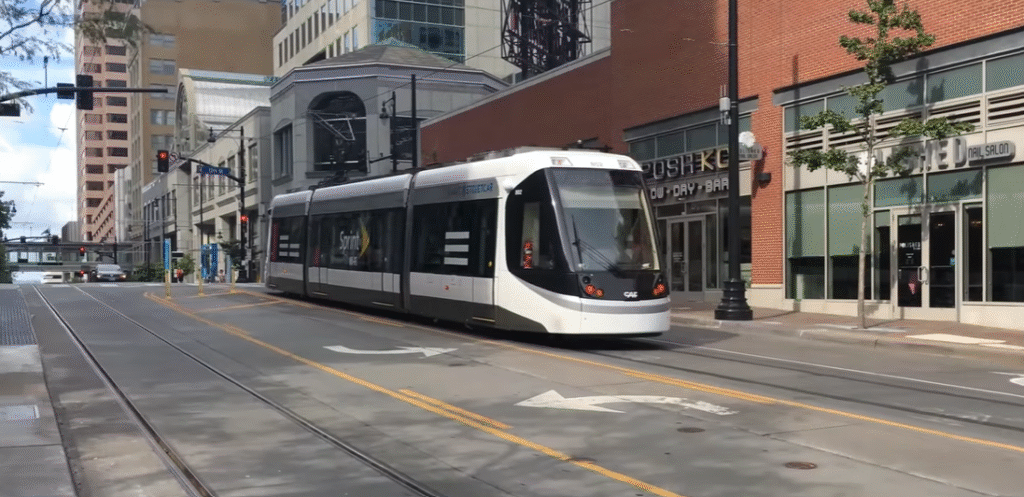Kansas City has become a surprisingly vibrant center of innovation. It is now praised for smart infrastructure, digital experimentation, and an economy that has been steadily shaped by high-tech ambition, despite its former reputation for smoky barbecue and jazz legends.
Kansas City is now a living lab for civic innovation thanks to InnovateKC, a program that links startups with city departments. Startups are encouraged to tackle municipal issues, such as waste optimization and traffic control, and evaluate their answers in real-world city operations. This program has been incredibly successful in changing the way local government and private industry work together, establishing a feedback loop that is both commercially astute and civic-minded.
The city has also experimented with cutting-edge “digital twin” technology, which creates virtual versions of its infrastructure and enables planners to run through scenarios before construction begins. Virtual testing of zoning changes or transportation models makes decision-making much more economical and efficient. This type of approach is especially novel for a city that is frequently undervalued on the national scene.
An increase in advanced biomanufacturing and life sciences has significantly enhanced Kansas City’s economic identity, which has historically been rooted in manufacturing and agriculture. Supported by federal funding, the KC BioSecure Manufacturing Tech Hub is a key initiative transforming the area into a national hub for the manufacturing of cancer treatments and biologic medications. This shift is socially significant and economically audacious since it is generating well-paying, long-term jobs that don’t always call for advanced degrees.
Table of Key Information
| Category | Details |
|---|---|
| Location | Kansas City, Missouri / Kansas City metropolitan area |
| Key Focus | Innovation across smart city tech, life sciences, advanced manufacturing, logistics |
| Strategic Assets | Central U.S. location, strong logistics network, startup ecosystem |
| Civic Initiatives | Program “InnovateKC” linking city departments with tech startups |
| Notable Growth | Bioscience hub, digital infrastructure, advanced manufacturing |
| Supporting Organizations | UMKC Innovation Center, KC Tech Council |
| Economic Impact | Diversified investment, job growth in high-tech and manufacturing |
| Cultural Shift | From traditional industries to forward-looking innovation sectors |
| Reference Source | Official city innovation page: https://www.kcmo.gov/programs-initiatives/kc-bizcare/innovate-kc kcmo.gov |
| Broader Implication | Reinvention of a Midwestern city as a national innovation player |

Meanwhile, Kansas City’s larger innovation story is being subtly driven by the logistics industry. Its location makes it a perfect place for distribution and warehousing, with 85% of the U.S. population within a two-day drive. Global brands like FedEx and Amazon have been drawn to the area’s industrial spaces, which have been converted for tech-driven freight management and e-commerce fulfillment. Kansas City has turned transportation efficiency into a kind of innovation leadership by utilizing this logistical advantage.
Technology and entrepreneurship are also important aspects of the city’s growth story. Digital Sandbox KC and the UMKC Innovation Center assist entrepreneurs in honing their initial concepts, obtaining capital, and growing their businesses into successful ventures. The entrepreneur-led, grassroots Kansas City Startup Village has emerged as a particularly useful model for teamwork, providing shared spaces and mentorship that foster creativity and accountability.
Tech behemoths have also taken notice. It wasn’t a coincidence that Google installed high-speed fiber internet here first; it was a sign. The business climate in Kansas City is still shaped by the tech enthusiasm that was sparked by that investment. Since then, businesses like Cisco and Meta have grown, attracted by a highly dependable workforce and a cost structure that is surprisingly low when compared to tech hubs along the coast.
However, Kansas City’s dedication to inclusivity may be the most glaring similarity between these initiatives. Innovation is incorporated into public services, education, and urban planning rather than being viewed as a luxury. Residents are not left behind thanks to the city’s investments in STEM education, workforce retraining, and fair internet access. This strategy has been especially successful in maintaining local residents’ interest and readiness to take part in the innovation economy.
The social impact is evident. Rather than taking the place of tech growth, neighborhood revitalizations are happening in tandem with it. Innovation-driven initiatives provide funding for infrastructure improvements that benefit local businesses, art districts, and public spaces. It’s a civic strategy that combines cultural vibrancy with economic gain, a rare combination that feels particularly Kansas City.
Big businesses are starting to test ideas that combine digital solutions with social purpose in Kansas City. One example is Google’s collaboration with the city to expand public Wi-Fi coverage, which simultaneously improves city data systems and provides high-speed internet access to low-income neighborhoods. These initiatives have come to represent how, with careful management, technology can benefit both people and businesses.
In terms of culture, Kansas City has maintained its allure while changing. The distinction between art and business is blurred by the abundance of galleries, tech offices, and coworking spaces in its downtown areas, such as the Crossroads Arts District. A style of innovation that is both purpose-driven and personal has emerged as a result of this fusion, which has made the city’s creative economy extremely versatile.

